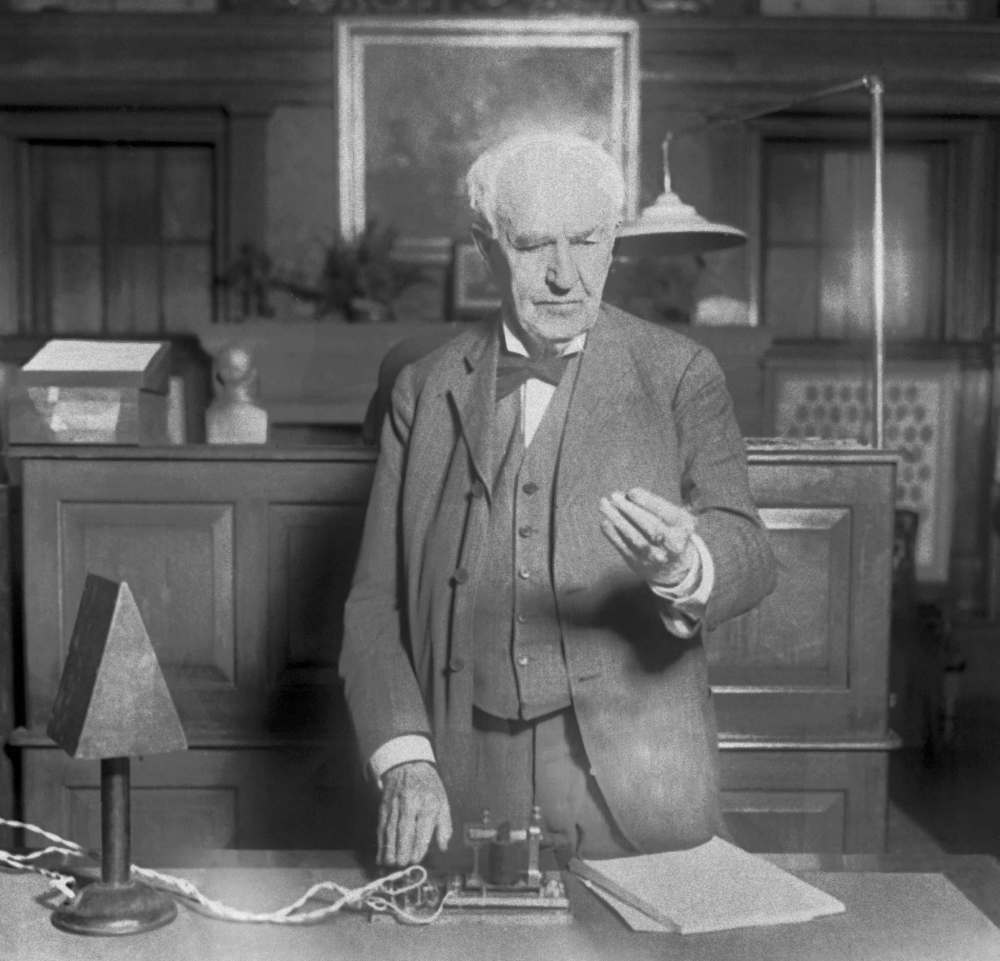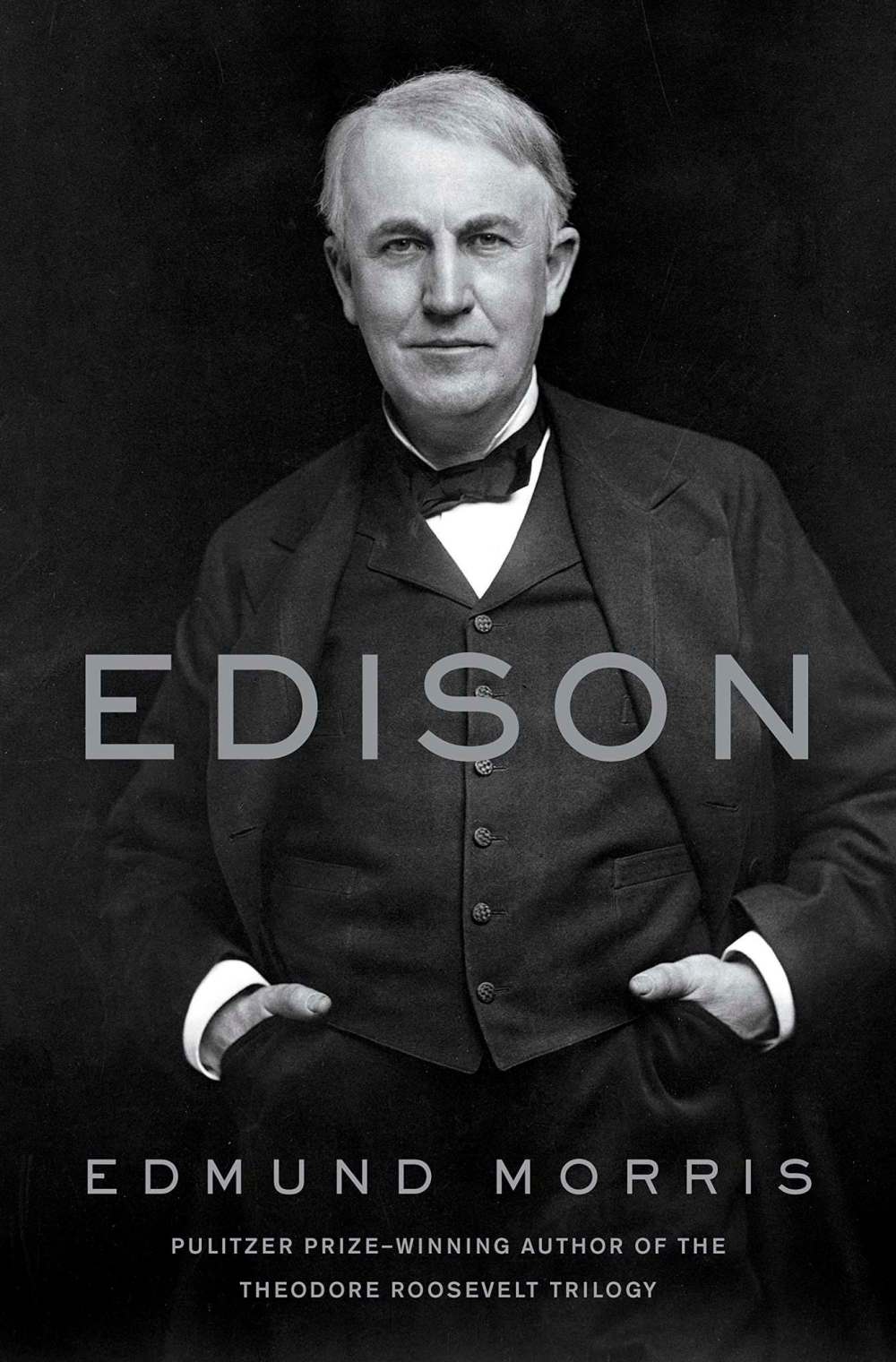Father of invention
Epic Edison biography offers a fresh, detailed take on an eccentric man
Advertisement
Read this article for free:
or
Already have an account? Log in here »
To continue reading, please subscribe:
Monthly Digital Subscription
$1 per week for 24 weeks*
- Enjoy unlimited reading on winnipegfreepress.com
- Read the E-Edition, our digital replica newspaper
- Access News Break, our award-winning app
- Play interactive puzzles
*Billed as $4.00 plus GST every four weeks. After 24 weeks, price increases to the regular rate of $19.00 plus GST every four weeks. Offer available to new and qualified returning subscribers only. Cancel any time.
Monthly Digital Subscription
$4.75/week*
- Enjoy unlimited reading on winnipegfreepress.com
- Read the E-Edition, our digital replica newspaper
- Access News Break, our award-winning app
- Play interactive puzzles
*Billed as $19 plus GST every four weeks. Cancel any time.
To continue reading, please subscribe:
Add Winnipeg Free Press access to your Brandon Sun subscription for only
$1 for the first 4 weeks*
*$1 will be added to your next bill. After your 4 weeks access is complete your rate will increase by $0.00 a X percent off the regular rate.
Read unlimited articles for free today:
or
Already have an account? Log in here »
Hey there, time traveller!
This article was published 30/11/2019 (2134 days ago), so information in it may no longer be current.
Edmund Morris’s Edison provides everything — absolutely everything — you’d ever want to know about the man popularly believed to be the greatest inventor of all time. Not just everything about Edison himself, but about his family, friends and important co-workers, his many inventions, extensive businesses and methods, his habits and opinions, his successes and failures and so on. At almost 800 pages, it’s a monumental, if flawed, achievement.
Morris spent seven years in the enormous, five-million-page Edison archives researching and writing this definitive book. His credentials are substantial — among his many works are his Pulitzer Prize-winning biography (a trilogy) of U.S. president Teddy Roosevelt and the official biography of U.S. president Ronald Reagan. He knows how to collect necessary material, gather personal anecdotes and give flesh to people and heft to stories.
His Edison is not the mythic figure most are familiar with — the Wizard of Menlo Park, the lone genius creating inventions out of his own mighty brain.

Morris suggests Edison’s most important “invention” was the creation of the first research and development park.
Though he possessed an undoubtedly brilliant mind and was a tireless, hands-on experimenter, one of the keys to his success was to assemble around him a group of equally indefatigable and dedicated collaborators.
Perhaps this is why the section on movies is the least satisfying in the book. Edison came up with the idea of the kinetograph and the first moving-picture studio, but his assistant, W.K.L. Dickson, was mainly responsible for the major work on the movie camera/projector.
Tellingly, the kinetograph section is in the chapter on magnetism. Each chapter takes its title from the inventor’s chief obsession of each decade of his career: natural philosophy, telegraphy, sound, light, magnetism, chemistry, defence and botany.
Although he’s most widely known as the inventor of the light bulb (and the dynamos needed to power them), his mind ranged over many subjects. Thus he was able to patent more than 1,093 inventions. His most inventive periods, oddly, were during the times of his two weddings, sometimes averaging one new idea every four days.
Edison the man, meanwhile, was odd. Termed “addled” as a child, he had virtually no formal education. Though he was “almost unreachably deaf” from age 12 — he listened to piano music by biting on the wood — he became a notable developer of audio equipment.
Twice married to younger women, he sired six children, none of whom he paid much heed to, as he could work up to 54 hours straight. He slept fully dressed when and where he could and subsisted on chewed cigars and tiny, irregular meals most of his life — and on only milk for the last several.

All of these quirks, as well as those of his friends and relatives, are brought to vivid life by Morris. It’s done, however, without any fancy analysis — there’s no mention, for instance, of the now faddish “autism spectrum.”
The fault with Morris’s book is the chronology. Edison is a reverse biography. It starts with the inventor’s death in 1931 and works haltingly backward decade by decade from 1920-1929 to 1847-1859. This strategy is never explained. Perhaps it is to avoid the major inventions and creative periods from eclipsing the later years. Perhaps it is to leave the most important question, the source of his deafness, to the final chapter on his boyhood.
Whatever the reason, it doesn’t work. Definitely read the book; it’s well worth it. But read it backward.
Gene Walz has been intrigued by Thomas Edison since he was a kid “experimenting” with magnifying glasses and sticks in his backyard.

